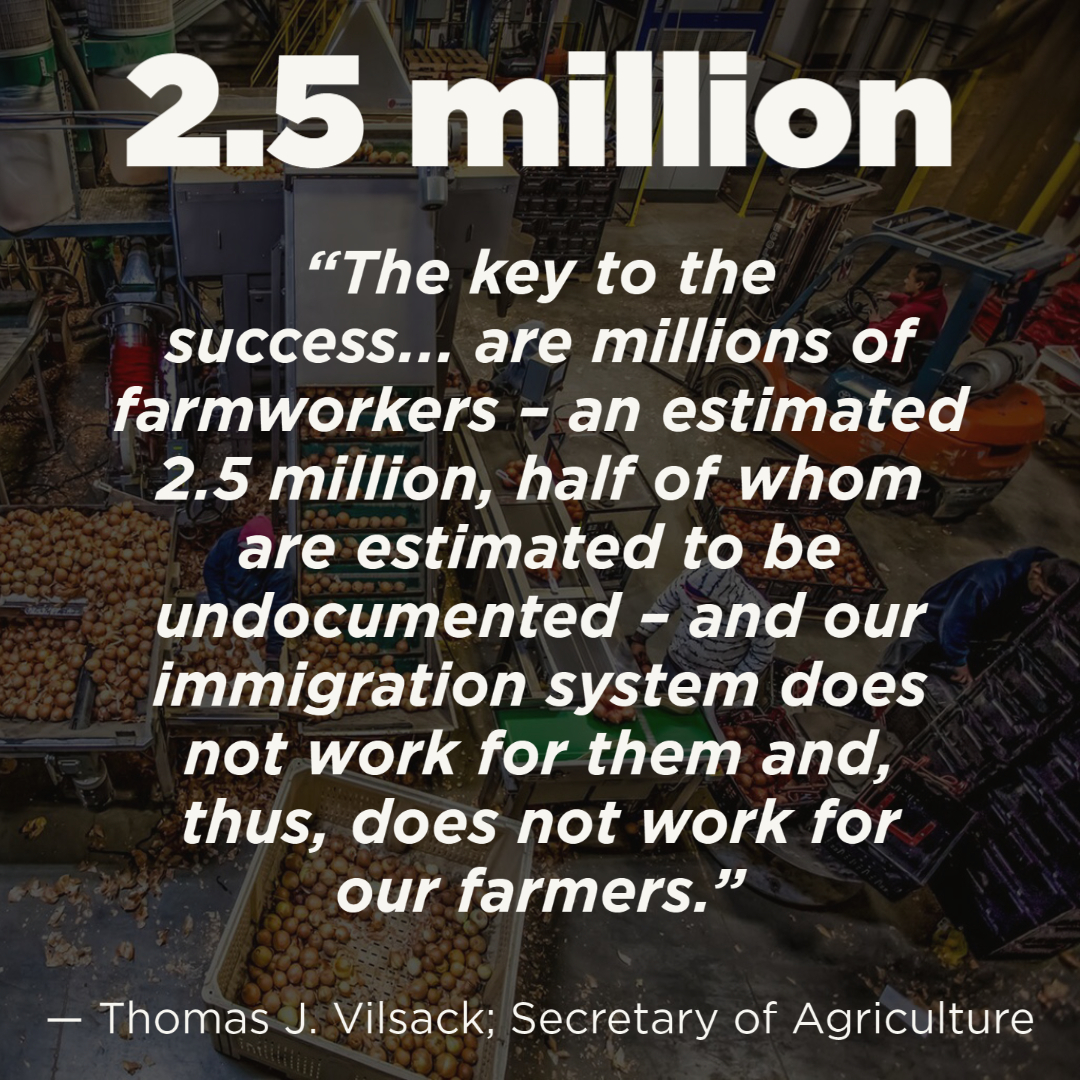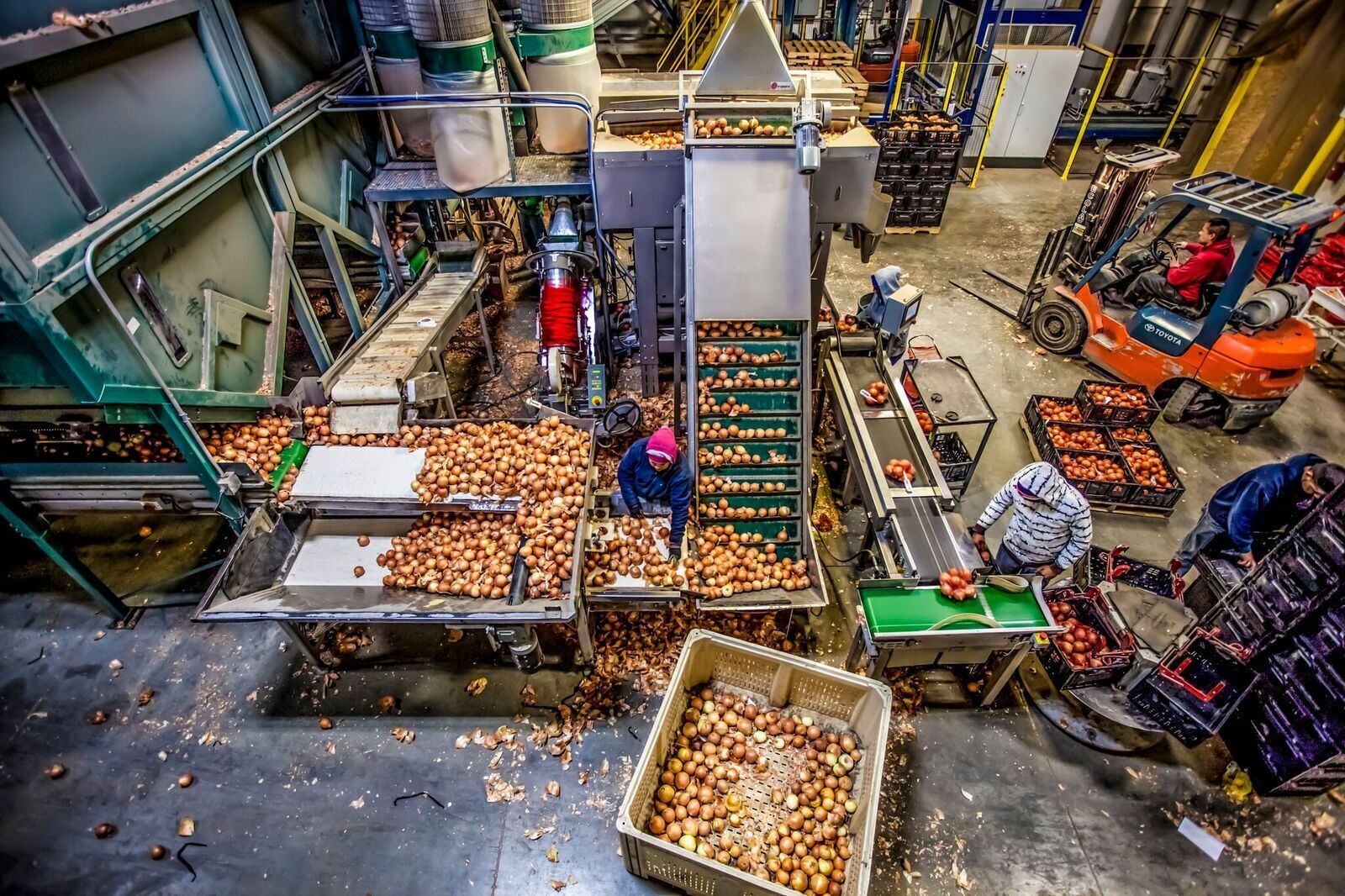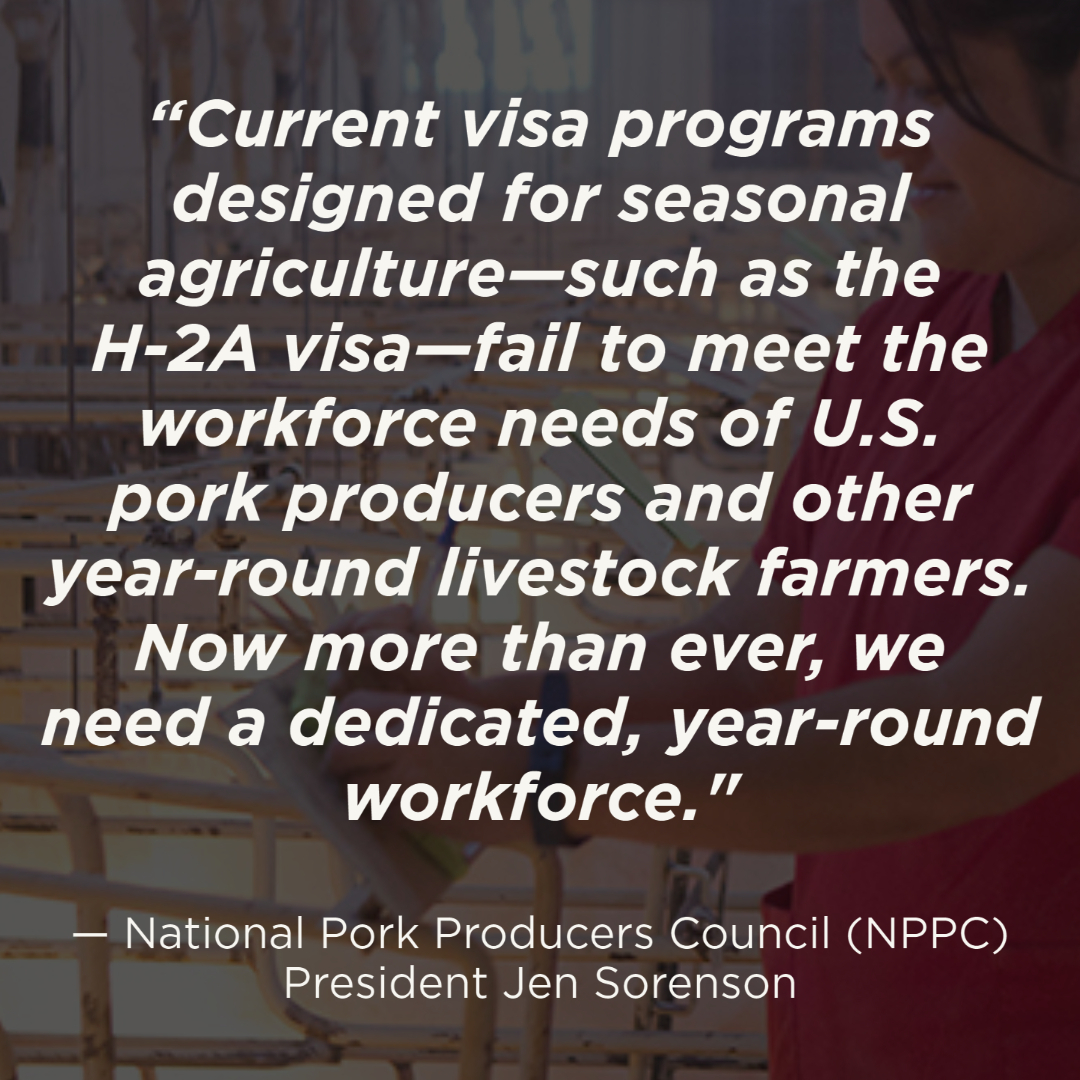Ag Leaders Urge Labor Reform in Historic Hearing of Judiciary Committee

U.S. agriculture is suffering from a labor shortage that could increase production costs and consumer food prices if not addressed through visa reform to provide better access to the foreign-born workers on which it depends, explained National Pork Producers Council (NPPC) President Jen Sorenson before the Senate Judiciary Committee hearing, “Immigrant Farmworkers are Essential to Feeding America” on Wednesday.
“During this pandemic we’ve all been forced to face the reality that our food supply chain depends, to a great extent, on the labor of immigrants. In every step of the food production process, from the moment a crop is planted to the moment our grocery bags are handed to us, there’s an immigrant worker who plays a critical role in feeding our families. Their work is essential and it’s never easy,” said Sen. Dick Durbin (D-IL), chair of the Judiciary Committee.

Historic Testimony
For the first time in over 20 years, the U.S. Secretary of Agriculture testified before the Judiciary Committee on the importance of farmworkers in the U.S. Vilsack said there is an estimated 2.5 million farmworkers, half of whom are undocumented.
“Our immigration system does not work for them and, thus, does not work for our farmers. As Secretary of Agriculture, I have met farmers and ranchers across the country who worry that our immigration system is broken and continually feel the consequences. They struggle with the uncertainty of the labor force from harvest to harvest, worrying they will be unable to find farmworkers to keep them in business. This kind of instability jeopardizes our farmers’ ability to be competitive, puts in question the security of our food supply and has repercussions on our overall economy,” U.S. Secretary of Agriculture Tom Vilsack said.
He described a discussion where the New York Farm Bureau president and a Vegetable Grower Association representative in New York shared they put out an advertisement for additional farmworkers and they didn’t get a single response.
“Not a single person responded to the ad for additional opportunities to work in this industry. It is clear this industry is dependent on immigrant workers. There are numerous examples of situations where requests were made for U.S. workers to work in these jobs and there was very little response if any,” Vilsack said.
This is a reoccurring story, Vilsack added. It’s replayed every day in packing plants, in fields and on farms.
“Immigrant labor comes in and does the difficult, challenging work that the rest of us are not interested in doing,” he said. “They do it well and they have the notion of being able to supply opportunity for a better life for their family. They care deeply for their family, sacrificing, working hard to make sure their families have a better life. We need to figure out something that allows them to have this connection with their family that the rest of us have every day.”

Stop Kicking the Can Down the Road
Vilsack applauded grower groups and unions for coming together and reaching a compromise and supporting the bipartisan Farm Workforce Modernization Act of 2021, which passed out of the U.S. House of Representatives on March 18 with a vote of 247-174.
“This legislation provides farmworkers – many of whom have lived in this country for years – an opportunity to earn citizenship,” Vilsack said. “With legal status and a path to citizenship, farmworkers would be able to earn higher wages and exercise their rights under our labor laws to demand better working conditions.”
Shay Myers, a vegetable grower in Oregon, testified before the Senate Judiciary Committee and strongly urged action on the Farm Workforce Modernization Act, which he said must include Green cards for those who keep America fed and consistent access to labor for farmers through H-2A visas.
“Let’s be honest with ourselves, the last 36 years of policies and political failures have led us here. Now is the time to act. It’s not ethical, it’s not economically viable and it’s not safe to kick this can down the road yet again,” Myers said. “I urge USCIS to process H-2A petitions much faster to meet the needs of farmers, and I urge Congress to reform the H-2A and H-2B visas to better serve our food supply chain.”

Year-Round Access to H-2A Visa Program
U.S. pork production is a year-round effort, requiring a hardworking and dedicated workforce on farms and in processing plants.
“Pork producers offer jobs with good pay and benefits, but most Americans do not live near hog farms or harvest facilities and rural populations continue to decline, causing the U.S. pork industry to be largely dependent on foreign-born workers,” Sorenson explained.
“Current visa programs designed for seasonal agriculture — such as the H-2A visa — fail to meet the workforce needs of U.S. pork producers and other year-round livestock farmers. Now more than ever, we need a dedicated, year-round workforce,” Sorenson told the committee.
If not addressed, she said the labor shortage “could lead to farms and packing plants shutting down, causing serious financial harm to the communities in which they operate. As a result, pork production would be constrained, leading to higher food prices for consumers and the United States becoming an unreliable trading partner for the many countries around the world that rely on our pork.”
NPPC is advocating for year-round access to the H-2A visa program without a cap. Legislation passed earlier this year in the U.S. House would offer a capped number of year-round visas.
“While NPPC believes the bill is a step in the right direction, a cap will force different sectors of livestock agriculture to compete against one another for the same limited number of year-round visas. In that scenario, no one wins and, ultimately, the consumer will be punished with reduced pork supplies and higher prices at the store,” Sorenson testified.
Read More:
Ag Labor Reform Hearing to Address H-2A Visa Program
NPPC Calls for Labor Reform, Seeks Changes to H-2A Visa Program







